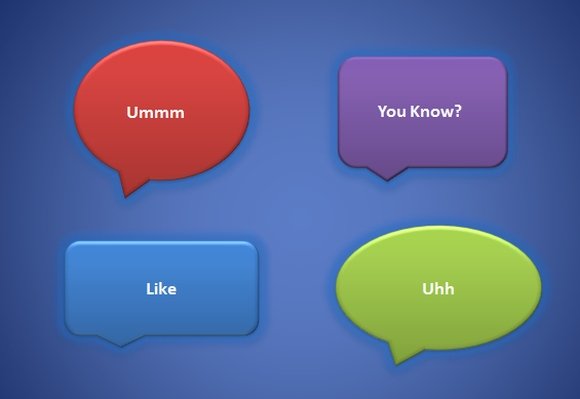Example Of Filler Words To Avoid During A Presentation
The ‘ums’ and ahs’ in your speech, are an insignia of your unpreparedness and lack of presence of mind. Presenters who fall into the habit of starting with these filler words, are not able to maintain the attention of their listeners for long. For instance, during a presentation when you put-up a question to someone and he starts with a long ‘ummm’, the first thought to cross your mind is, that he doesn’t know the answer and is pondering over what to tell you as a satisfactory reply. This is also a barrier for the replier to convince you of the legitimacy of his answer.

Impacts of Using Filler Words in Your Speech
- Although in certain cases filler words are meaningful; and help the listeners feel they are conversing with a human and not machine; but if overused it leads to annoyance.
- During a slideshow, when you read through what is written on a slide; and then start with a ‘like you know’ the audience is most likely going to feel that, you hardly know anything about the topic.
- And once you get an idea of how much your audience is distracted with the regular ‘actually and in fact’ your confidence level goes down even more.
So what should one do to get rid of the addiction; or to prevent themselves from falling into this habit?
Enunciate And Vocalize
It helps you buy some time and by being articulative, you are comprehensible to the audience too. Hence, when you are in doubt and waiting for the answer to strike you; or preparing the formative reply then instead of going for ‘uh and actually’ simply slow down the pace of your speech.
Practice And Prepare
Often people ask for the question to be repeated, in order to fetch themselves little time to prepare themselves for answering. However, the trick might not work every time; so it is better to practice beforehand and think of replies for the tentative queries that might be put forward.
You can also discipline yourself a few days before the presentation by taking-up the assignment of selecting five random questions and practice speaking their answers. And every time you insert a filler word intentionally or unknowingly, you repeat the whole answer again. This will aid you in giving-up the habit of incorporating filler words in your speech.
If you are trying to overcome the habit of using frequent filler words during your presentation; then it is time you started counting, how many times you use it in every sentence.
